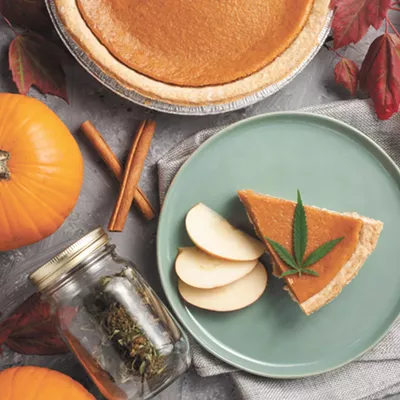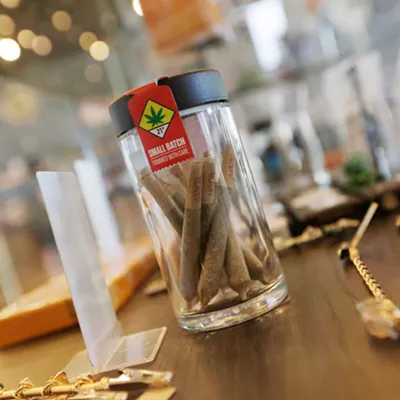
President Joe Biden said last week he will pardon all prior federal offenses for simple cannabis possession, which will affect an estimated 6,500 people.
"There are thousands of people who have prior Federal convictions for marijuana possession, who may be denied employment, housing, or educational opportunities as a result," Biden said in a statement. "My action will help relieve the collateral consequences arising from these convictions."
The pardon only applies to U.S. citizens convicted at the federal level. State-level convictions are not included, but Biden said he's also "urging all Governors to do the same with regard to state offenses."
The number of people who will be directly impacted by Biden's pardon represent only a small percentage of those living with prior possession charges. Nonetheless, the move is a massive shift in federal cannabis policy that could change state-level policy, says Erik Altieri, executive director of the National Organization for the Reform of Marijuana Laws (NORML).
"We are pleased that today President Biden is following through on this pledge and that he is also encouraging governors to take similar steps to ensure that the tens of millions of Americans with state-level convictions for past marijuana crimes can finally move forward with their lives," Altieri said in a statement.
Numerous states with legal cannabis have already taken that step. In Washington state, misdemeanor cannabis charges for those over the age of 21 at the time of the offense have been eligible for expungement since 2019.
Biden's action shows the limits of his pardoning power. The overwhelming majority of simple possession charges around the country are brought at the state level. According to the ACLU, between 2001 and 2010, there were 8.2 million cannabis arrests in the United States, 88 percent of which were for simple possession. Biden's pardon for 6,500 people is a drop in the bucket of these millions of arrests.
However, the federal pardon establishes a precedent that should allow governors to feel more comfortable with pardons or expungements in their own states.
"Just as no one should be in a Federal prison solely due to the possession of marijuana, no one should be in a local jail or state prison for that reason, either," Biden said. ♦


















